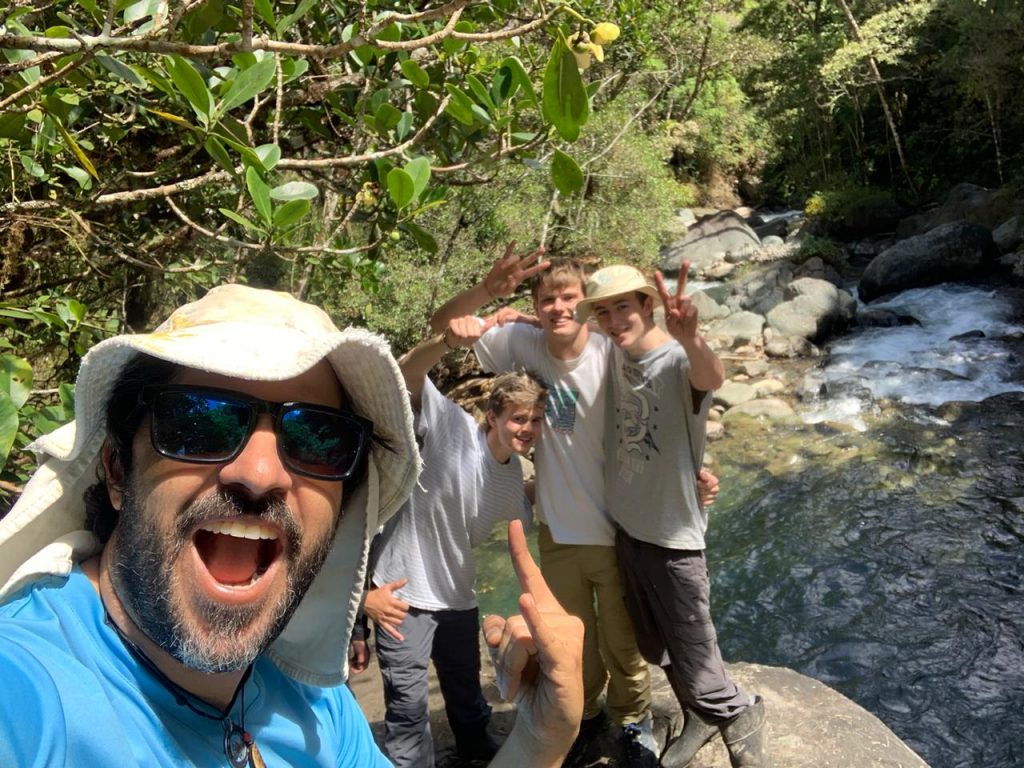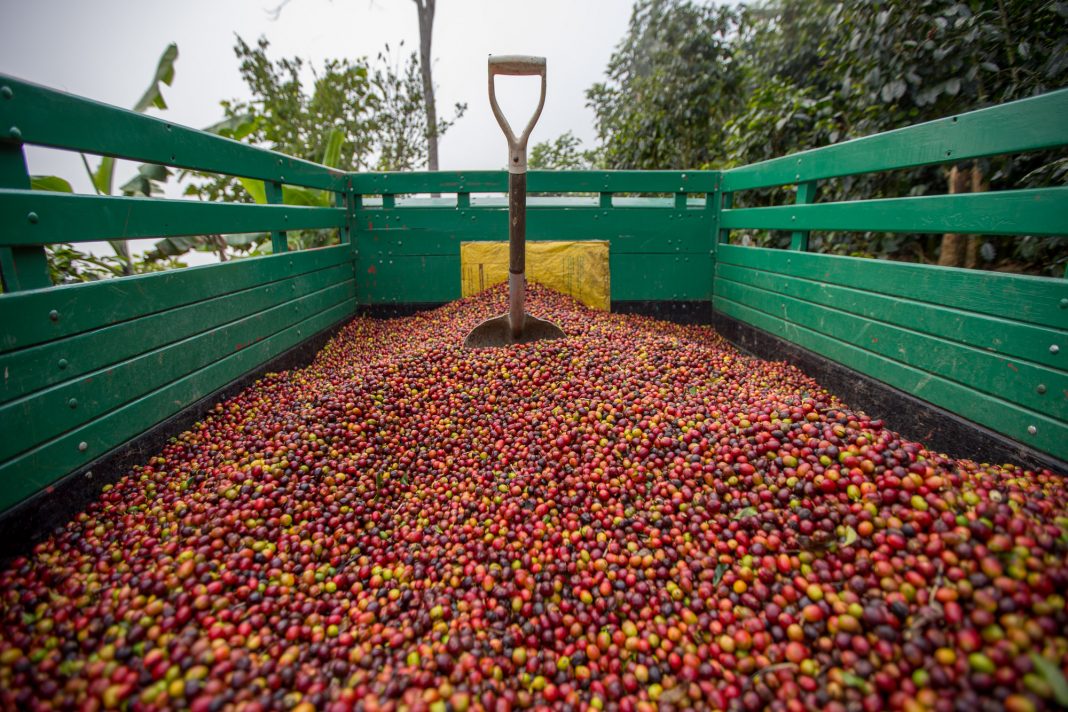A month spent focusing on the Costa Rican coffee industry and the financial struggles faced by small coffee growers would not be complete without a look an emerging sector of the market: organic coffee. Here, two micro-entrepreneurs from the Los Santos area whose ventures combine organic coffee farming and tourism share their experiences and challenges.
Lucidia Hérnandez is from San Marcos de Tarrazú and runs her organic coffee and tourism business, Tierra Amiga Tarrazú, with her husband, Minor Montero. They have a coffee plantation in San Marcos and they tourists to their home to learn about coffee growing and taste Tierra Amiga products. Jonathan Cerdas grew up in San José but returned to his family roots in Los Santos as a tourism professional, creating Santos Tour and eventually an organization called Green Communities. The nonprofit has used international volunteering programs as an incentive for coffee farmers to convert to organic and ecological practices, which helps preserve the forests of the region. Today, 15 farmers are a part of the program.
Both Jonathan and Lucidia produce their own organic coffee; both are also members of the pilot group of Directory 506, our project to give greater visibility to rural tourism ventures.
The following are excerpts from their comments, edited for clarity.
Lucidia Hernández and Minor Montero, Tierra Amiga Tarrazú
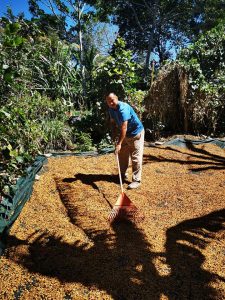
When I started with organic coffee 15 years ago, at first I questioned myself because of my lack of knowledge. I didn’t understand how it worked. People would whisper, “That person is doing things the wrong way. She is crazy. That way of working the coffee plantation will never get anywhere”. But you have to move forward.
Organic agriculture is an artisanal process that’s very different from conventional agriculture, which is an almost homogeneous recipe that all coffee growers work from. When you start a challenge you must have a goal in mind; to get there you have to work hard, train very well, and learn everything about the subject.
It took me five years before I could look around and see what we’d achieved. The main objective was to understand how plants are nourished, and to understand that there are four very important elements to get there: fire, water, wind and earth. Organic agriculture is not just dung, or cow excrement: you have to analyze the soils and look for materials that have an organic certification, or that at least show a certain respect in the way they are extracted. In the end, the judges are the coffee plants, which show us if we are doing things right or wrong.
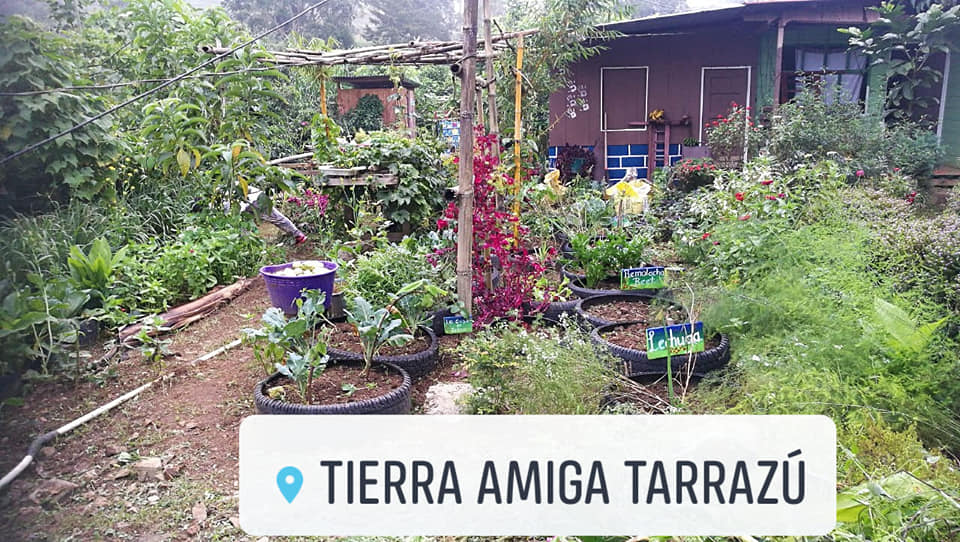
All this has taken initiative and perseverance. Fifteen years ago, there were about 15 of us throughout the Los Santos region dedicated to organic coffee growing; at that time there was a population of approximately 12,000 people, of which 5,000 were coffee producers. Little by little, members of that original group withdrew. Those producers saw drops in production, diseases such as coffee rust, and an unfavorable market, since the price difference between a quintal of organic coffee and a conventional coffee was very small. Right now, of those who started 15 years ago, I’m the only one left.
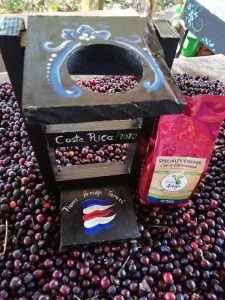
When it comes to the environmental, one of the reasons for organic coffee is that conventional agriculture uses strong chemicals that are killing thousands of vital microorganisms in the soil, as well as killing different types of insects such as bees that are part of a common ecosystem. We have not been rewarded yet in an economic sense, but the process of differentiating ourselves from the rest has led us to finding our own clients. The entities that buy coffee in the area do not give us a price difference for producing a coffee with other qualities.
By buying organic coffee, consumers help promote a kind of agriculture that is often not given the support it requires. Every time you buy a bag of organic coffee, you’re giving that producer the economic capacity to continue developing their project and motivate other people to use organic methods.
We believe that organic coffee farming and tourism are perfect other. It’s one of the best rewards we can have. The people who visit us always take coffee with them, and they share the experience they had with their family and friends. This gives us free advertising that would cost us a great deal to buy. People can see where each cup of coffee they drink comes from. They know us as we are, with our muddy boots and a well-worn hat that protects us from the sun. Our satisfaction at being able to share the passion and love with which we work the land.
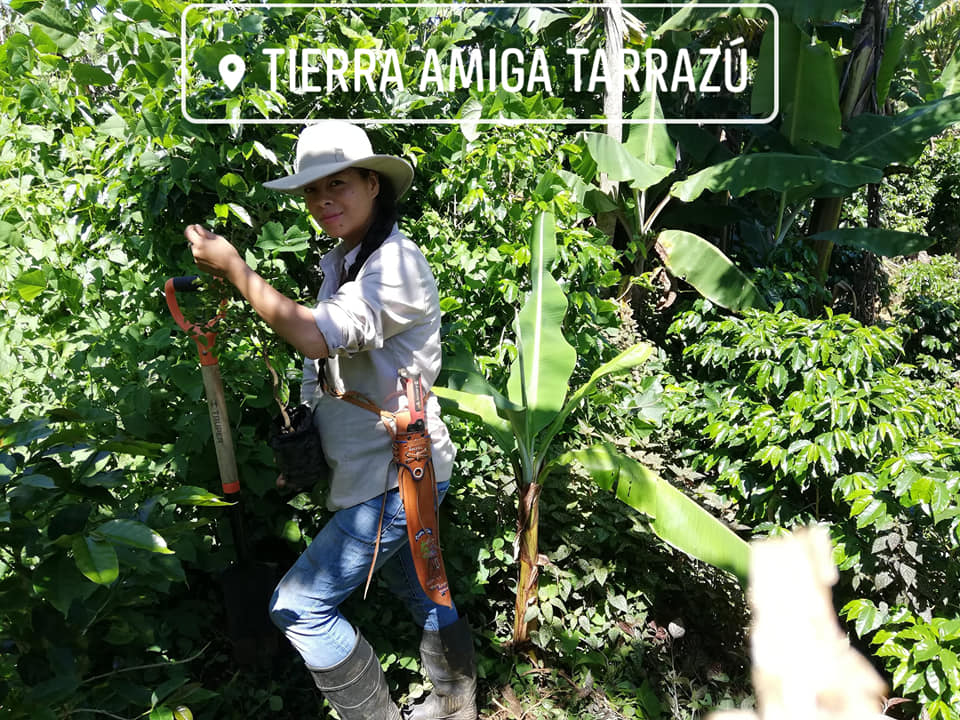
Jonathan Cerdas, Green Communities
Have I ever asked myself if I was crazy for getting into organic coffee? Well, yes, actually. When we saw the amount of materials and compost and everything that had to be put onto the coffee, and saw how complicated it was to get things, and saw so much rejection from everyone—the organizations, the cooperatives, the farmers themselves—you really do question yourself. But then seeing the results in the soil, seeing changes at some farms, and seeing the result that it generates at an international level, and seeing the small number of organic farmers… all of that makes you stay. The toughest thing was some people’s negativity. But when we got those first bags of coffees, tried it and had such a good cupping, that was super motivational.
The social impact of organic coffee goes hand in hand with the economic impact. We feel that the farmer is being greatly affected by the prices paid by cooperatives. We do not understand why the business keeps on going as it is when prices are very high and the intermediary sells well. In the meantime, the farmers have fewer and fewer possibilities, products are more and more expensive. Each day, there is more debt. People get sad; they don’t know what to do. That’s why many people cut down their forests, because they believe they can produce more coffee, but they are not doing the math. Because they might not have an education or administrative support, they do not know how much they are gaining or losing. The environment is being destroyed, and people just keep getting poorer.
That’s the main reason for doing an ecological coffee project. In the social and economic side, we are educating people so that they know about climate change issues: why is it the middle of summer and it is raining? Why havne’t we been able to ripen the coffee because it is not sunny? Why is there less and less water every year? On the environmental side, we seek to preserve for future generations the little bit of forest that we have left, and ensure that the coffee grown today does not contaminate the tributaries of the rivers, does not cause more erosion. That no more agrochemicals and pesticides are used.
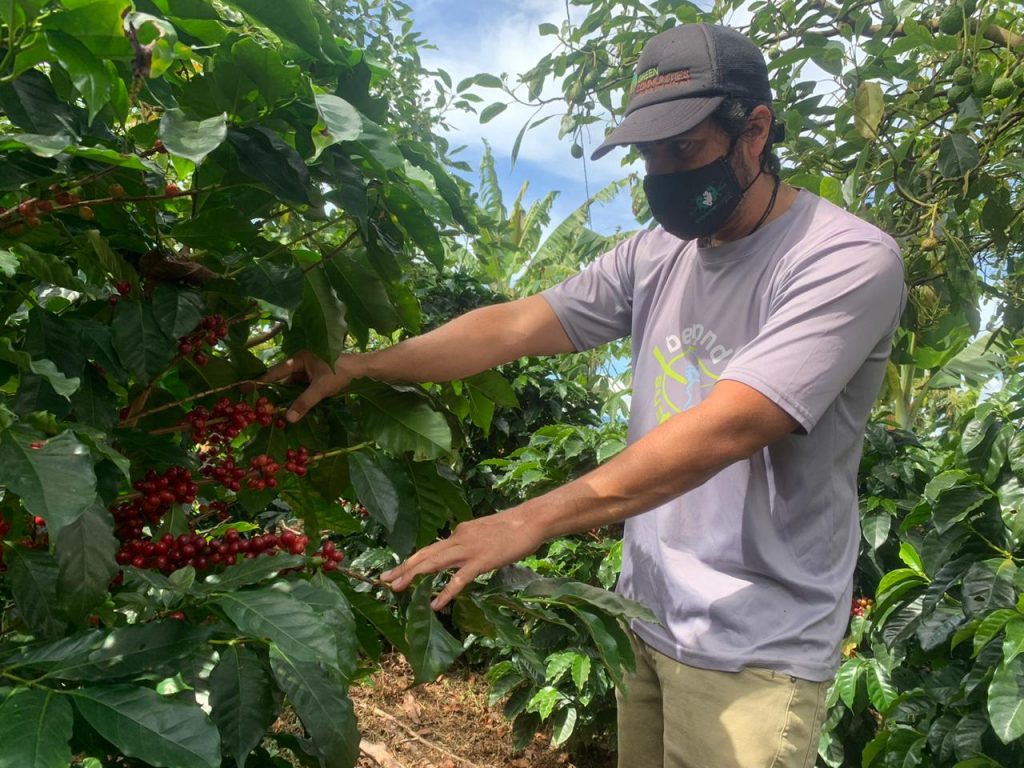
Because we sell the coffee ourselves, directly, the price of organic coffee allows us to give each farmer a premium of $80 per bushel over and above the final price set by the cooperative. Apart from that, we give them the materials, and they can receive volunteers who come to work on the farms, thereby giving them a little labor. Another social impact is that we have a group of Young Dreamers, most of them children of farmers, who are receiving environmental education.
If people want us to have natural resources in the future, if people want farmers to have coffee farms for many generations… this is more than enough reason for people to consume organic and ecological coffee. A cup of coffee can make a big difference. Only 1% of producers are organic, and if we do not change our way of thinking, we are simply supporting deforestation, the pollution of our air and rivers pollution, and the economic mistreatment of farmers, since they are paid so poorly. You’re supporting a system that just doesn’t make sense. If we understand that we can’t eat money, it’s more important to make sure that when you drink a cup of coffee that’s organic and ecological, you’re protecting the soil, the forest, and the mountains. It’s also about educating people to consume a product that is not going to hurt their stomach, since organic coffee does not have any type of chemicals.
The problems I see for the future of organic coffee are the sheer quantities of products that are needed to be able to cover all the farms. Right now, the quantity of compost we use on the farms is so much more than the corresponding amount of chemicals you’d use. Another challenge is for universities to start forming more agronomists who love nature, because it is very strange that agronomists live off plants and all they want is to use chemicals. I even know of agronomists who even recommend recipes that are prohibited due to toxicity. That educational component for the leaders who manage these types of campaigns is important so that they can change their vision.
Organic coffee and tourism are everything to me. They completely changed my life, because I always wanted to be an environmentalist and had not succeeded. I was a tourism professional, and I was doing well. But when we managed to merge that with the environmental project in an area that is on the way to losing its greatest environmental wealth due to the threat of coffee growing, which is real… for me, it is a privilege. More than tourists, it has made me many friends around the world. What’s more, during the pandemic, our tourists and volunteers are the ones who helped us to gradually come out of the crisis, since they are the ones who bought our coffee online!
Organic coffee has deepened my love for the environment and helped me respect it more and more, day by day.
